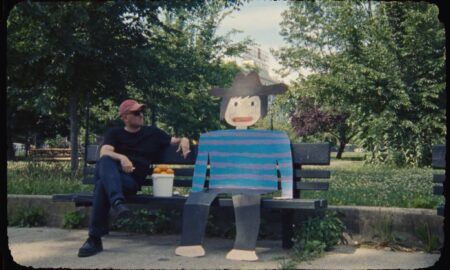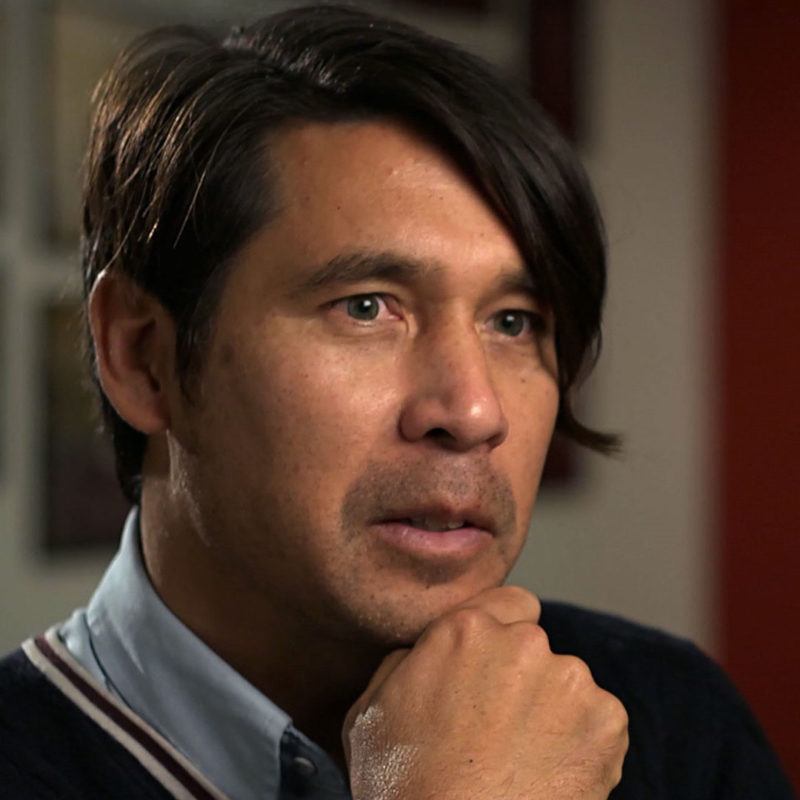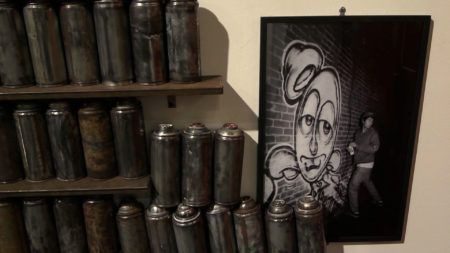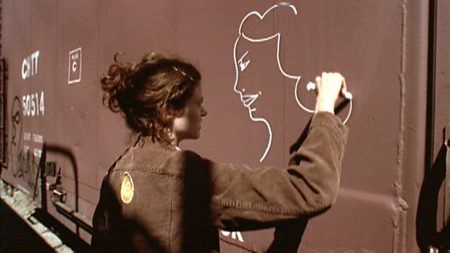Continue playing
(Time remaining: )
Play from beginning
Continue playing "{{ controller.videos[controller.getVideo(controller.currentVideo)].segmentParentTitle}}"
{{controller.videos[controller.getVideo(controller.currentVideo)].title}} has ended.
RetrospectiveBarry McGee
Filmed in 2012, artist Barry McGee discusses the work of his friends, family and a younger generation of street artists that he included in his retrospective exhibition at the Berkeley Art Museum and Pacific Film Archive. Though these artists are not as famous as McGee, their work is displayed with equal prominence.
This democratic approach to making and displaying art is a defining characteristic of McGee’s street and studio practices. McGee’s self-titled retrospective exhibition traveled to the Institute of Contemporary Art (ICA) Boston in 2013.
More information and creditsCredits
Producer: Ian Forster. Consulting Producer: Wesley Miller & Nick Ravich. Interview: Bob Elfstrom. Camera: Bob Elfstrom. Sound: Doug Dunderdale. Editor: Morgan Riles. Artwork Courtesy: Barry McGee. Special Thanks: UC Berkeley Art Museum and Pacific Film Archive. Theme Music: Peter Foley.
Closed captionsAvailable in English, German, Romanian, Italian, Japanese, Korean, Chinese, Italian
Through the Art21 Translation Project, multilingual audiences from around the globe can contribute translations, making Art21 films more accessible worldwide. Translate this video now.
Interested in showing this film in an exhibition or public screening? To license this video please visit Licensing & Reproduction.
Barry McGee’s drawings, paintings, and mixed-media installations take their inspiration from contemporary urban culture, incorporating elements such as empty liquor bottles and spray-paint cans, tagged signs, wrenches, and scrap wood or metal. McGee is also a graffiti artist, working on the streets of America’s cities since the 1980s, where he is known by the tag name “Twist.” He views graffiti as a vital method of communication, one that keeps him in touch with a larger, more diverse audience than can be reached through the traditional spaces of a gallery or museum.
Barry McGee
Preview



